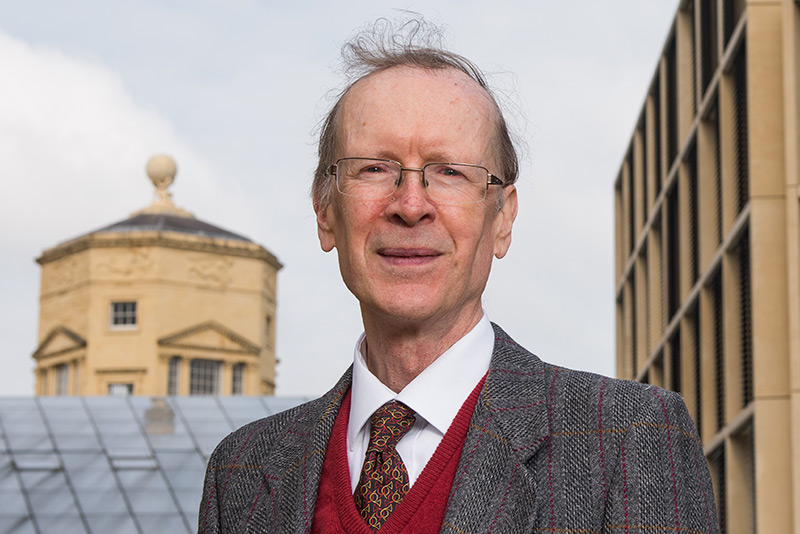The Regius Professorship in Mathematics is secured for the future
The prestigious post has now been endowed thanks to alumni generosity.
The prestigious Regius Professorship in Mathematics, which was awarded to the University as part of the Queen’s 90th birthday celebrations in 2016, has now been endowed thanks to the generosity of Merton College alumni. Donations from individuals including Sir Howard Stringer, Dr Andrew Robertson, Dr Peter Braam, and Mr Charles Manby played a pivotal role in securing this post, boosted by support from MC3, the Merton College Charitable Corporation, and from University matched funding.
 Regius Professor of Mathematics Sir Andrew Wiles outside the Mathematical Institute
Regius Professor of Mathematics Sir Andrew Wiles outside the Mathematical Institute
The first incumbent of the Regius Professorship of Mathematics is Professor Sir Andrew Wiles, a fellow at Merton College. Professor Wiles famously proved Fermat’s last theorem (a 350-year-old conjecture) almost 30 years ago and is widely recognised as one of the world’s leading mathematicians. In 2013 the new home of the Mathematical Institute, the Andrew Wiles Building, was named in recognition of his contributions to the subject.
Regius professorships are rare, sovereign-granted titles that recognise the most outstanding levels of research in their fields. As well as acknowledging Oxford’s pre-eminence in research and teaching in mathematics, the award highlights the many benefits that flow to society from a deeper understanding and appreciation of mathematical science.
Together, Merton alumni raised £2.25 million towards the endowment, which was matched with over £1 million from the University’s Endowment Challenge Fund.
Professor Irene Tracey, Warden of Merton College, says: ‘Merton has been the spine of mathematics at Oxford, pure or applied, since the 14th century. The Merton Calculators are the bedrock of mathematics in Oxford, after whom a golden age followed, and the college’s contribution has continued until the present day. We are enormously grateful to our alumni for securing this important position, which will inspire future teaching and research not only at Merton, but at the Mathematical Institute and beyond.’
SUPPORT THE MATHEMATICAL INSTITUTE